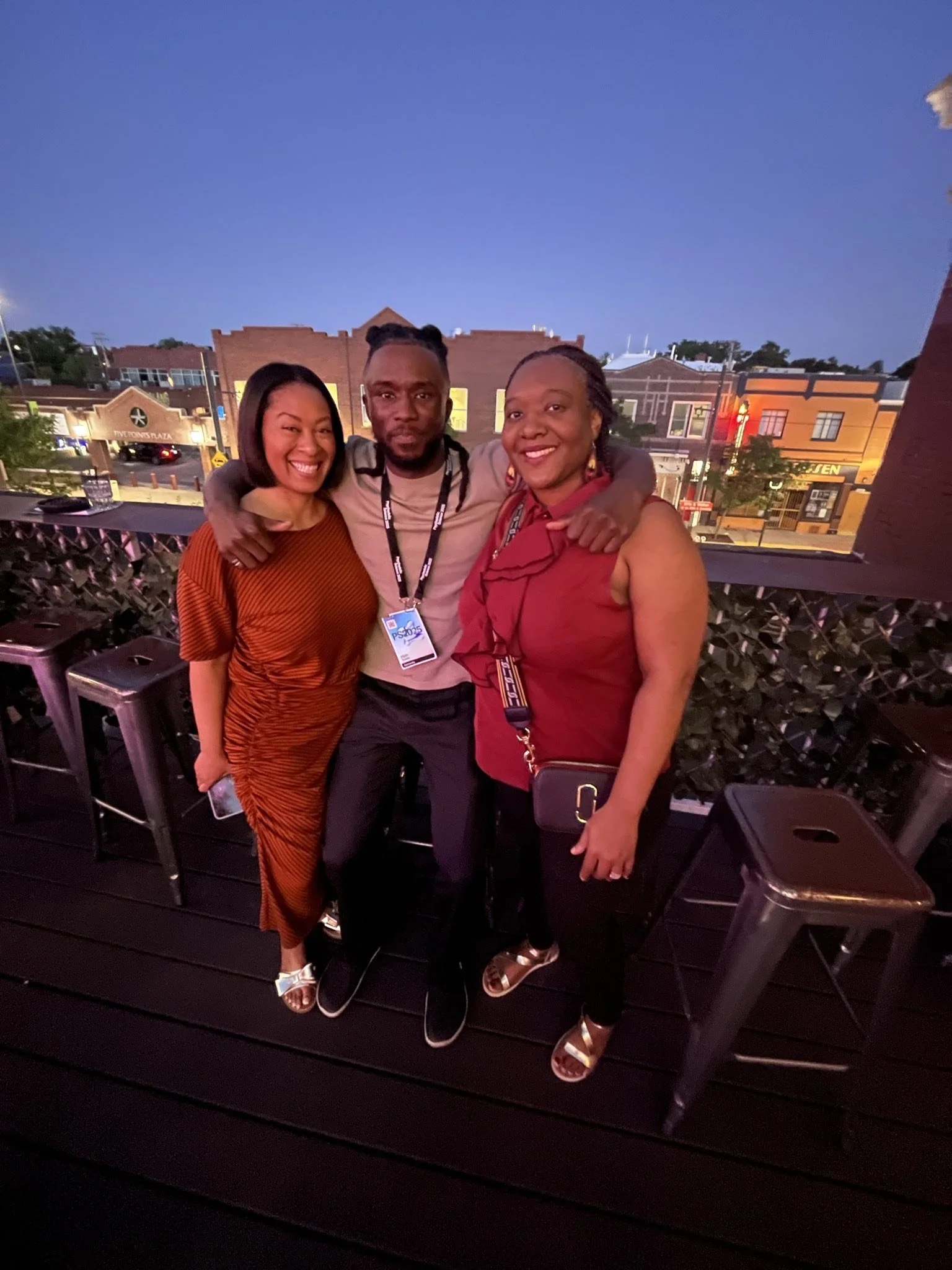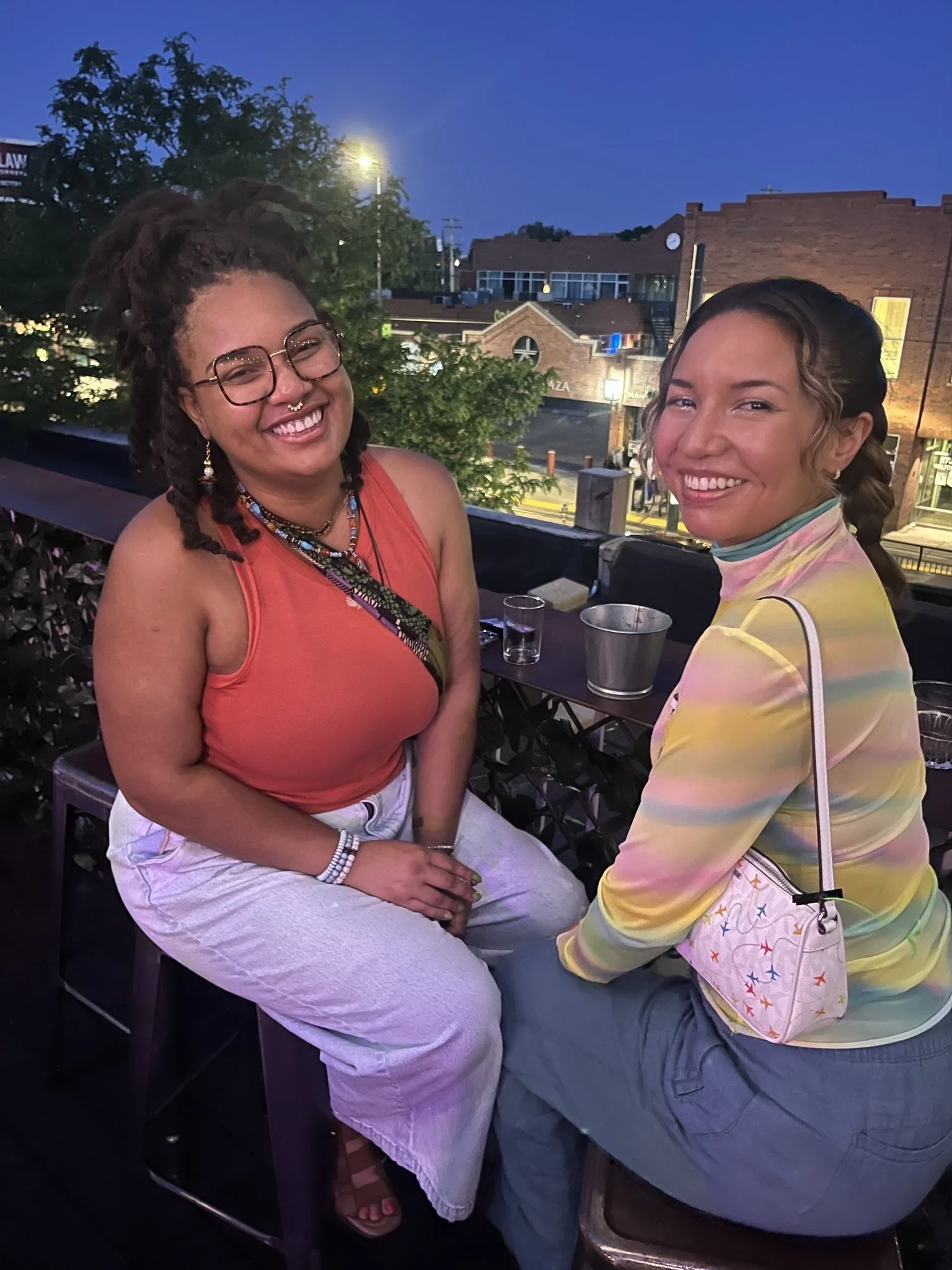Top 5 Things I Learned at Psychedelic Science 2025
By: Arkayla Tenney-Howard
Attending Psychedelic Science 2025 was amazing. I had never been to a psychedelics conference before and this was the BIG ONE. For me, it wasn’t just about the panels, the research, or the keynotes (though those were incredible too)—it was about connection, courage, and care. For myself. For others. For the work ahead.
Here are the five biggest lessons and joys I took away from my time at #PsychedelicScience25
1. Community is medicine too
On the first night of the conference, I helped host a BIPOC After Hours event. It was simple—a few hours for Black and brown folks to gather, connect, and be in community. But the impact? Huge.
I personally spoke to 50 different people that night, reminding them that the purpose of the event was to create a little anchor. So that tomorrow, when you’re in the sea of thousands at the conference, you might spot someone across the room you’ve already met. You might wave, share a smile, and feel a little more at home.
That’s the magic of our spaces. For Black and brown people, sometimes just seeing someone who looks like you in a room can offer comfort, confidence, and the courage to move through white-dominated spaces with more ease.
Hosting that event was a gift for me. The next day, I got to hug folks I’d just met, exchange smiles of recognition, and feel less alone. It reminded me that I can find community anywhere.
A few attendees of the BIPOC after hours event.
2. The power of connection is bigger than you think
I went into the conference assuming I’d meet folks working on the healing and community side of psychedelics like me. And I did. But I was surprised to also connect with researchers—a space I’ve always found a little intimidating.
It was wild (in the best way) to find immediate points of connection with them—whether over fashion, food, or just complaining about the Denver heat. Meeting researchers who were approachable and deeply invested in qualitative research and storytelling made me feel… smarter. It eased some of the imposter syndrome I’d been carrying. I even learned about some opportunities to use my communications background to support future psychedelic research. So cool!
It reminded me that connection doesn’t have to stay in the lanes we expect. And sometimes the people you’re most intimidated by are the ones who’ll help you feel like you belong.
3. Ask for what you need—seriously
One of the speakers dropped a gem early on: “The person asking the question is the one with the power. The one guiding the conversation.” That stuck with me.
Armed with that wisdom, I asked questions. Lots of them. Big ones like: What are easy-to-enter career paths in psychedelics? Where do I fit in? And smaller ones too. No one made me feel out of place for being curious. Instead, I got real, helpful answers.
This mindset shift even led me to something tangible. I’d been searching for formal training as a psychedelic sitter, and while exploring the conference hall, I came across the Zendo Project. I shared my background and my desire for professional experience—but also admitted that my budget was tight.
The result? I received a scholarship to join their program. Now, I am getting the official Zendo-Sit certification, which I know will kickstart my career shift into psychedelics. That wouldn’t have happened if I hadn’t asked. The biggest takeaway? Don’t be afraid to name what you need. The worst anyone can say is no—and then you move on.
Arkayla with an attendee of the BIPOC After Hours.
4. Listen to your body
Conferences are a lot. The first two days I was all in—running between sessions, soaking up knowledge, connecting with folks. But by day three? I crashed. Hard. My social battery was completely drained. I live with chronic pain, and my body was letting me know to sit the hell down somewhere.
So I gave myself permission to rest. Instead of forcing myself into more sessions, I slept in. Then spent the day riding a bike around the park, breathing in mountain air, journaling, and just existing.
And here’s the thing: no one made me feel bad about it. In fact, people cheered me on: “Hell yeah, take care of yourself. Enjoy that bike ride.” It felt so good to be in a space where rest wasn’t punished but celebrated.
Listening to my body made the rest of the conference even better.
5. The medicine is sacred—always
One of the most powerful moments of the conference came during the keynote speeches. Several Indigenous speakers reminded us that psychedelic medicine isn’t just another commodity to be mass-produced or consumed casually. It’s sacred.
This medicine is a gift—from the earth, from God, from the communities that have cared for it for generations. It’s meant to be approached with reverence and respect, not treated like the next big product for capitalism to exploit.
I felt deeply moved hearing these reminders. This work isn’t just about individual healing—it’s about collective responsibility. About honoring not only the plants and fungi themselves but also the people and ecosystems that sustain them.
From how we grow and harvest these medicines, to how we consume and even dispose of them, we must carry that sacredness forward. Because these journeys aren’t casual. They’re profound—sometimes 6- to 12-hour dives into parts of ourselves we couldn’t otherwise access.
I left hoping everyone in that room was truly listening.
Final Reflection
I left Psychedelic Science 2025 feeling more educated about psychedelics, more confident in my curiosity, and more committed to building spaces where people can show up fully—whether that means asking questions, resting, or holding space for joy.
The opportunities we’re seeking exist—sometimes we just have to be brave enough to ask, to show up, to rest, and to connect. And sometimes, all it takes is one gathering, one question, one bike ride, one keynote to remind you to confidently dive into your passions.



